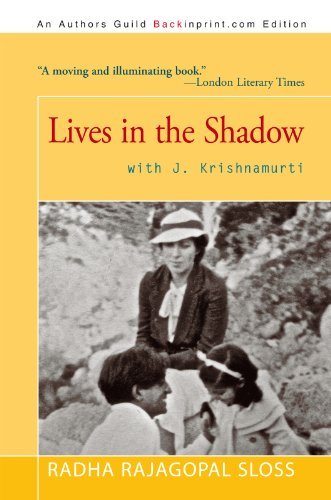What do you think?
Rate this book


372 pages, Kindle Edition
First published May 2, 1991
"To Krinsh I feel grateful for many things. From earliest childhood he taught me to be free from the desperate seeking and searching for respectability and security, for gurus and masters and ideologies. I learned from him that comparisons and labels lead to prejudice and unhappiness, that conformity leads to mediocre imitation, that there can be no freedom where there is guilt or fear. He let me be free from him and taught me not to be afraid to wander in a pathless land."